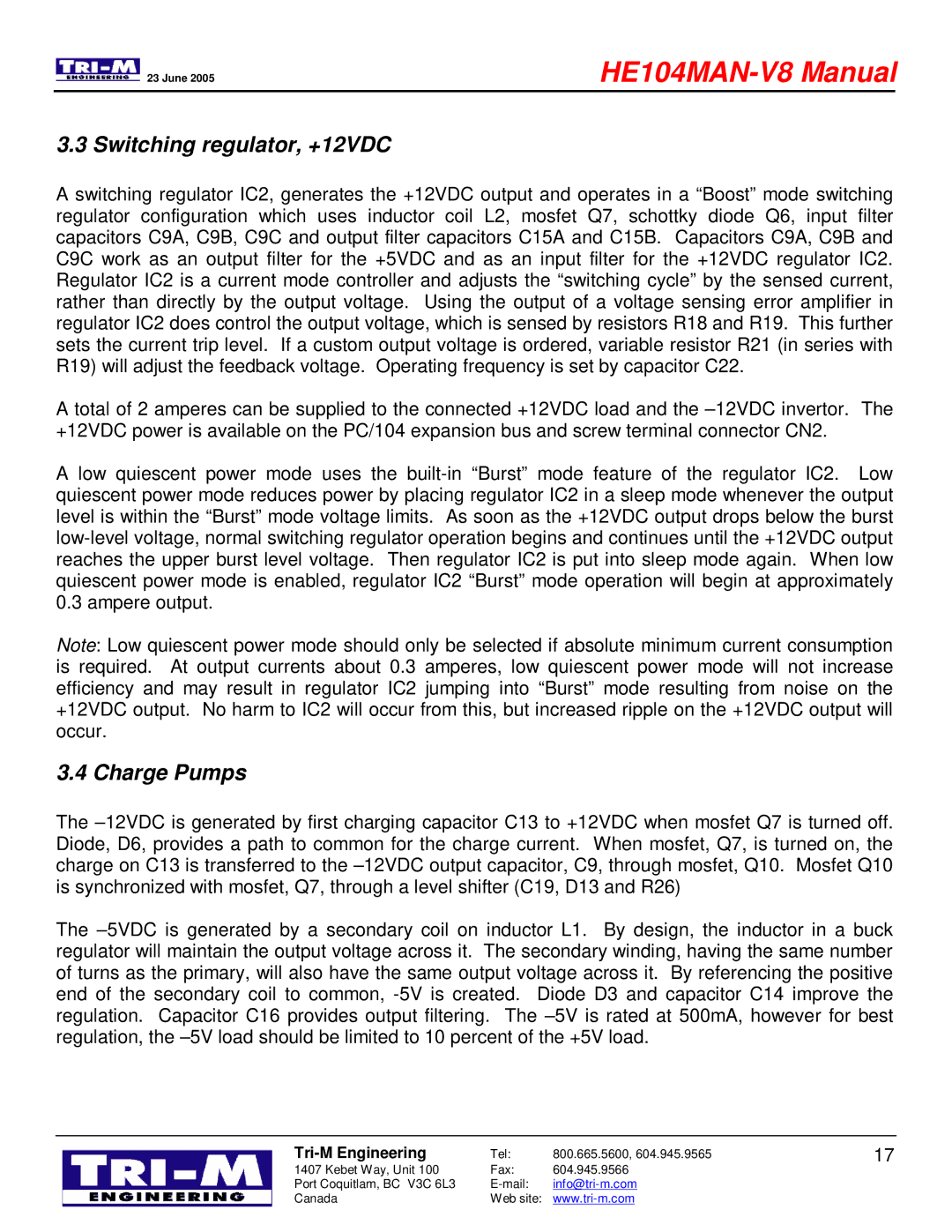
23 June 2005
HE104MAN-V8 Manual
3.3 Switching regulator, +12VDC
A switching regulator IC2, generates the +12VDC output and operates in a “Boost” mode switching regulator configuration which uses inductor coil L2, mosfet Q7, schottky diode Q6, input filter capacitors C9A, C9B, C9C and output filter capacitors C15A and C15B. Capacitors C9A, C9B and C9C work as an output filter for the +5VDC and as an input filter for the +12VDC regulator IC2. Regulator IC2 is a current mode controller and adjusts the “switching cycle” by the sensed current, rather than directly by the output voltage. Using the output of a voltage sensing error amplifier in regulator IC2 does control the output voltage, which is sensed by resistors R18 and R19. This further sets the current trip level. If a custom output voltage is ordered, variable resistor R21 (in series with R19) will adjust the feedback voltage. Operating frequency is set by capacitor C22.
A total of 2 amperes can be supplied to the connected +12VDC load and the
A low quiescent power mode uses the
Note: Low quiescent power mode should only be selected if absolute minimum current consumption is required. At output currents about 0.3 amperes, low quiescent power mode will not increase efficiency and may result in regulator IC2 jumping into “Burst” mode resulting from noise on the +12VDC output. No harm to IC2 will occur from this, but increased ripple on the +12VDC output will occur.
3.4 Charge Pumps
The
The
| Tel: | 800.665.5600, 604.945.9565 | 17 |
1407 Kebet Way, Unit 100 | Fax: | 604.945.9566 |
|
Port Coquitlam, BC V3C 6L3 |
| ||
Canada | Web site: |
|
